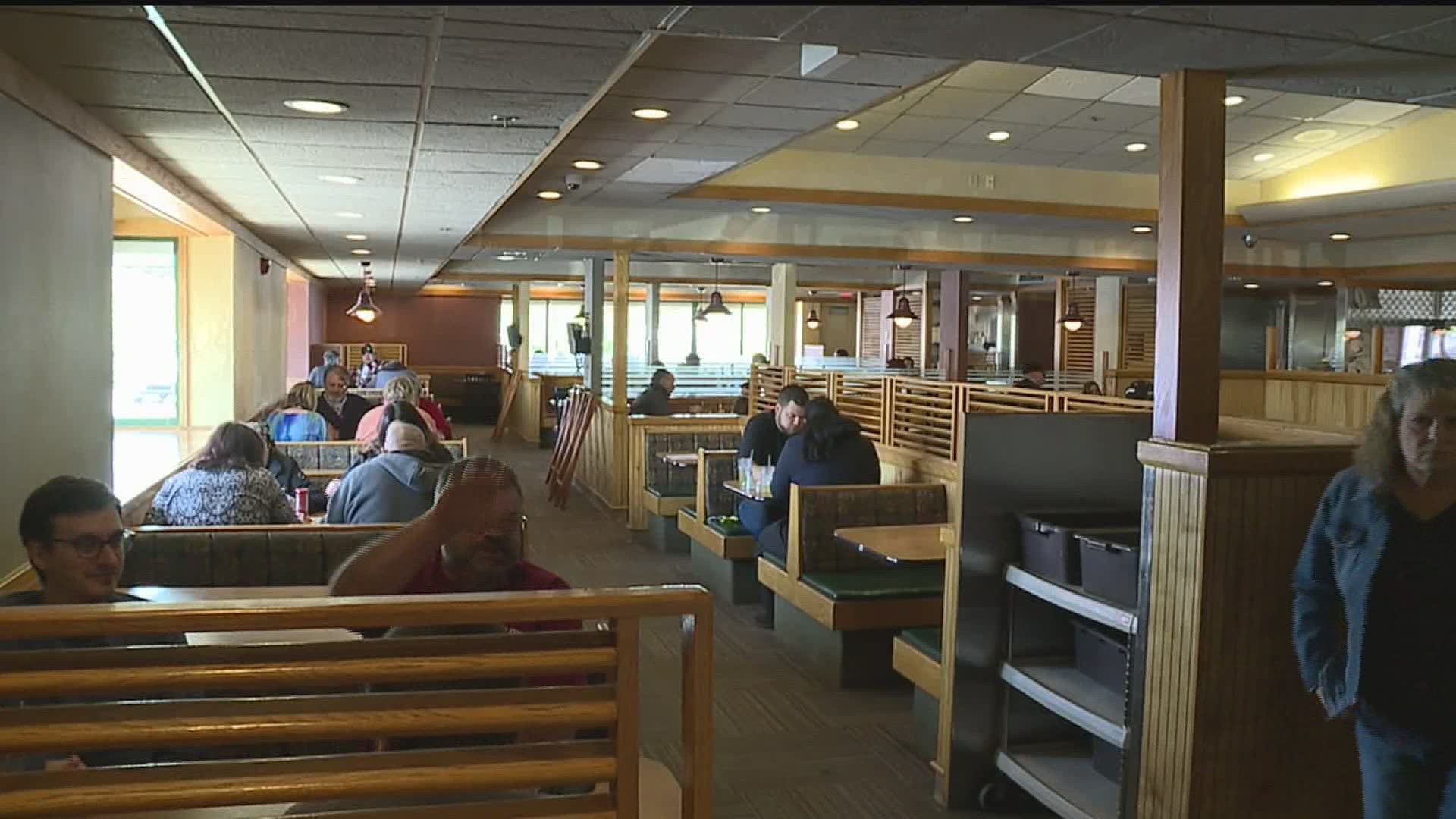PENNSYLVANIA, USA — "They're very offended by the concept that they should have to self-certify in order to reopen," said John Longstreet, president and CEO of the Pennsylvania Restaurant and Lodging Association.
As of 2018, the association reported 26,548 places to eat and drink. So far, only roughly 4,500 of those have self-certified since the state's website opened up last Monday.
"To be asked to self-certify when restaurant are arguably the safest operators of all retail businesses. They are required to follow FDA rules. They are required to have health inspections," explained Longstreet.
"I have yet to actually find a member who signed a self-certification," said Chuck Moran, executive director of the Pennsylvania Licensed Beverage and Tavern Association.
He says it comes down to trust.. or a lack thereof.
"I mean, there is a lot of distrust right now between this Governor and this industry," explained Moran.
When information on the self-certification process came down, it stated self-certification is subject to penalties, which Longstreet believes likely scared many owners off. He said owners feared doing the wrong thing or making mistakes which could result in serious penalties or fines. For example, some operators worried if an inspector caught a worker with his or her mask momentarily down or a customer moved their chair too close to another table.
"They felt like when they first read it that they could be putting themselves in criminal jeopardy by signing this," explained Longstreet.
"We want to let people know this is a pro-business tool," said Michael Gerber, Executive Assistant to the Secretary for the Pennsylvania Department of Economic and Community Development or DCED.
DCED is handling self-certification. However, it's not conducting enforcement efforts. Gerber said he wants to address the misinformation which concerned owners.
"This isn't something where we're trying to slap businesses with fines or penalties. If there are any violations, this is going to stat with warnings and education. That's what it's about," said Gerber.
He says self-certifying is about ensuring customers that restaurants are doing the right thing. What does it mean for customers who want to visit places that don't self-certify?
"They are still more than welcome to patronize any of these businesses that are or not self-certified," explained Gerber.
There is no cost to self-certify, and it's not a requirement; however, restaurants cannot increase capacity beyond 25 percent unless they do so, according to officials. Many owners hope Governor Wolf will sign House Bill 2513 into law. It already passed through the Pennsylvania House and Senate. If Governor Wolf does not veto, it would include a bump to 50 percent capacity and a return to bar seating besides relaxing other restrictions, which some owners believe makes self-certification a moot process.
According to the state's website, restaurant owners or their official business representatives can certify their restaurant online. To certify, a restaurant's representative must read through the health and safety requirements and input contact information. Upon validating an email, the self-certification process will be complete, and a restaurant will be added to the searchable public database of certified restaurants by the next business day. Physical materials, such as window clings and other signage, will be mailed to the address listed on the self-certification within a few weeks.
It adds that self-certifying will not lead to additional inspections from enforcement agencies. State officials say certifying helps demonstrates a restaurant's commitment to protecting employees and providing patrons a safe dining experience, in addition to the benefit to move from 25% to 50% indoor capacity.
You can read a full FAQ on the process by following this link https://dced.pa.gov/wp-content/uploads/2020/09/Open-Certfied-Pennsylvania-FAQs.pdf.
It's important to note: Whether self-certifying, or choosing to remain at 25% capacity, all restaurants and bars must still abide by all applicable orders and guidance issued by Wolf and Secretary of Health Rachel Levine, according to the state's website. According to the FAQ, businesses may have their certification revoked and be removed from the searchable online database of certified businesses if they are found in violation of the health and safety requirements. If a business has its certification revoked, continuing to display physical certification materials may result in additional penalties.

